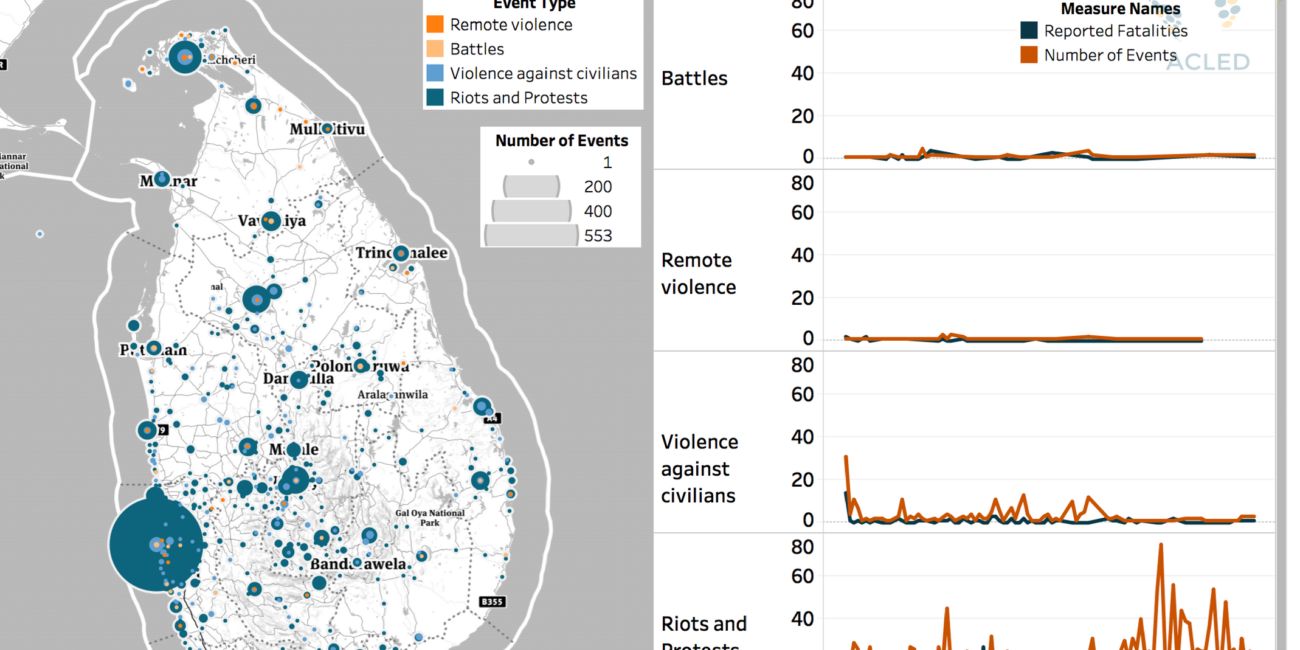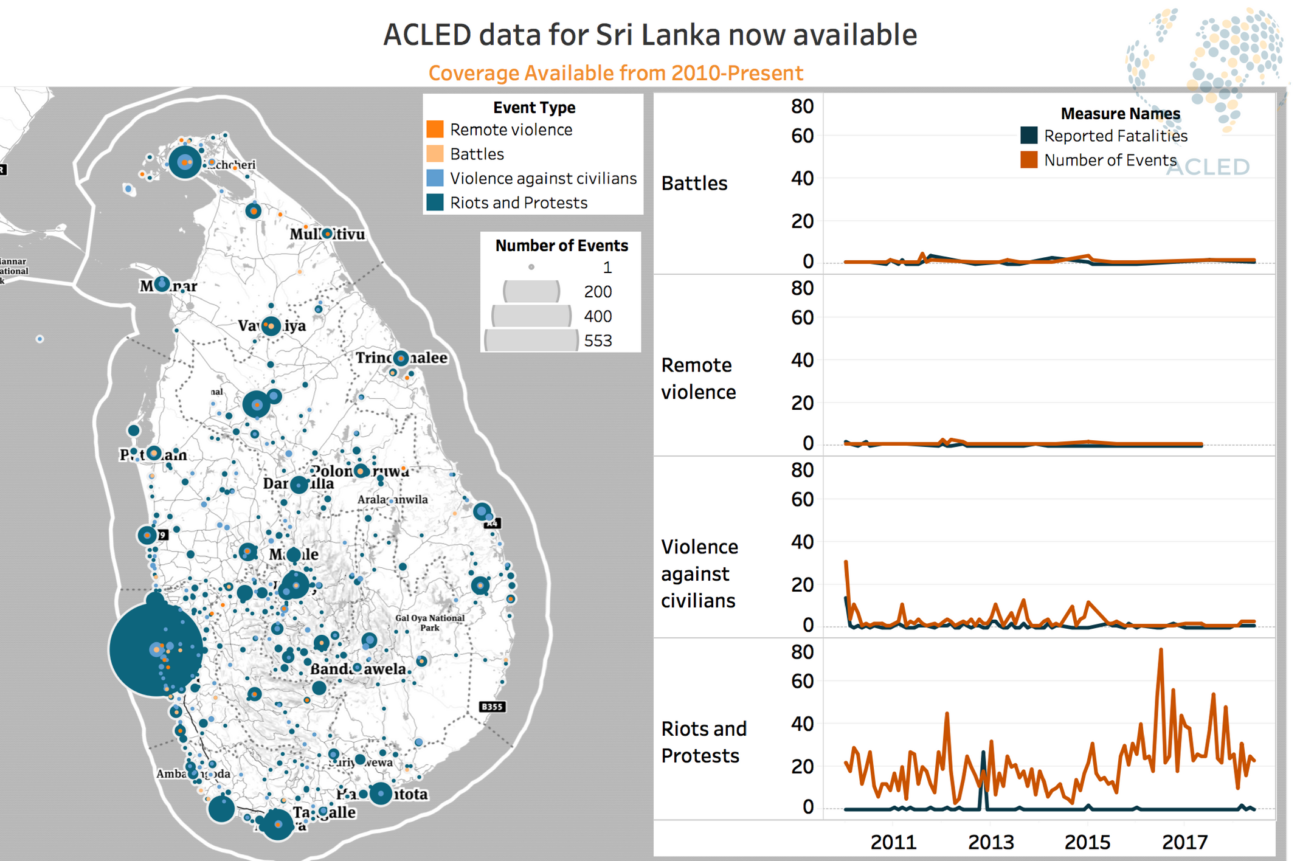The period of ACLED’s coverage of Sri Lanka, 2010-2014, was bookended by the country’s sixth and seventh presidential elections, each marking major political events in the country’s political violence and protest landscape. During Sri Lanka’s January 2010 presidential election, supporters of multiple major political parties engaged in election-related violence, resulting in a high number of recorded events and reported fatalities, particularly violence against civilians.
Throughout the period in question, however, riots and protests were by far the most common event type observed in Sri Lanka. Spikes in the recorded number of riots and protests in 2012 — or in their resulting reported fatalities — correspond to two notable political events. First, the passage of the United Nations Human Rights Council (UNHRC) resolution 19/2 promoting reconciliation and accountability in Sri Lanka provoked outrage and controversy across the country. Second, a deadly prison riot at Welikada prison in November 2012 resulted in the death of at least 27 prisoners.
AnalysisAsiaCivilians At RiskConflict MonitoringPressRemote ViolenceRioting And ProtestsViolence Against Civilians







